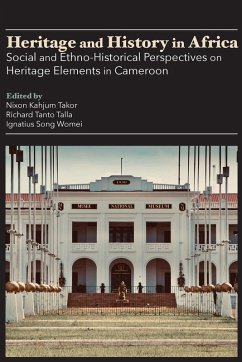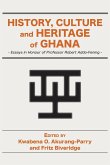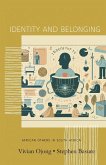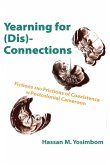There has been a long standing belief and misconception that 'relevant' history is shelved and can only be retrieved from written documentation. This conviction systematically diminished in importance with the emergence and approach of Africanist scholarship in the 1960s which increasingly exposed the pitfalls of religiously relying on paper- inscribed or engraved historical sources. This twist away from recorded history gave premium to a craving for the exploration and exploitation of material and immaterial heritage sources to understand and communicate connections between heritage and history in Africa. This compendium of interlacing themes on Cameroon threads the multiple but complex ways by which vestiges; natural and man-made, and social memory merges into confi guration of perspectives on historical representation of people, environment, and society in Africa. Designed in seven grand themes with a conceptual lead on heritage and presented in sixteen chapters, this book generally provides reliable non-documented sources that help construct the African indigenous knowledge as experienced by themselves from their heritage. This volume is highly recommended for use by scholars, students, practitioners, promoters and lovers of heritage values.
Hinweis: Dieser Artikel kann nur an eine deutsche Lieferadresse ausgeliefert werden.
Hinweis: Dieser Artikel kann nur an eine deutsche Lieferadresse ausgeliefert werden.








